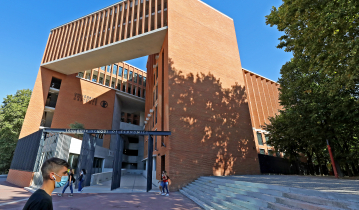Yue FEI will defend her thesis in economics on "Essays on Venture Capital and Innovation" on Thursday 7th November 2019 at 5:00 PM, room MS 217 (Manufacture des Tabacs)
Supervisor: Ulrich HEGE, Professor at TSE
Memberships are:
- Professeure Gioavanna NICODANO, Collegio Carlo Alberto
- Professeur Adrien MATRAY, Princeton University
- Professeur Ulrich HEGE, Ut1
- Professeur Milo BIANCHI, UT1
Abstract
This dissertation investigates the firm incentives to participate in entrepreneurial and innovative activities. The first chapter examines and evaluates the private sector’s response to public involvement in venture capital. The second chapter studies and estimates the performance gap between government linked and private venture capitalists and the determining factors of this performance gap. The third chapter provides a theoretical framework to understand and analyze the firm-level innovation incentives in the industrial networks.
In Chapter 1, titled "Can Governments Foster the Development of Venture Capital? ", I examine the role of government intervention in the emergence of venture capital (VC) in China during 1999-2013 using a novel dataset and a unique policy experiment. The difference-in- difference analysis shows that the central government program leads to an increase in local investment from both government and private VCs.
In Chapter 2, titled "(Under)performance of government venture capitalists: Evidence and explanations", using the sample from the same source as in Chapter 1, I find that start- ups backed by government VCs are less likely to have Initial Public Offering (IPO) exits than private VCs. Evidence shows that the performance gap is narrowed down when the VC market develops into a more mature stage.
In Chapter 3, titled "Firm Level Match under Imperfect Information Along the Global Value Chain", (joint with Rui Zhang), we develop a 1-m frictional positive assortative matching (PAM) model along the global value chain. We show the existence of multiple equilibria where a supplier could be matched to different headquarters, but at different stages on the value chain. Our model also features countervailing forces of firm innovation incentives and we predict a nonmonotonic pattern between innovation and firm productivity.



